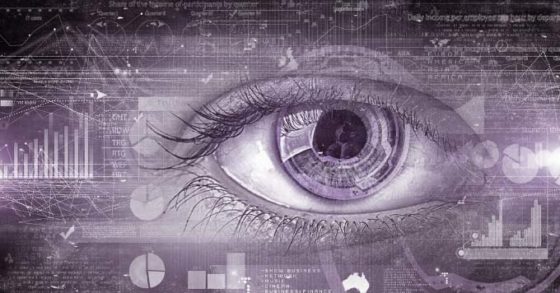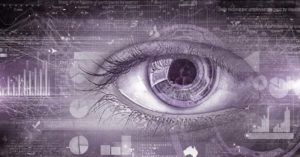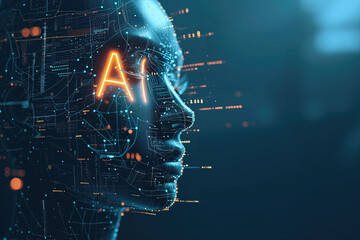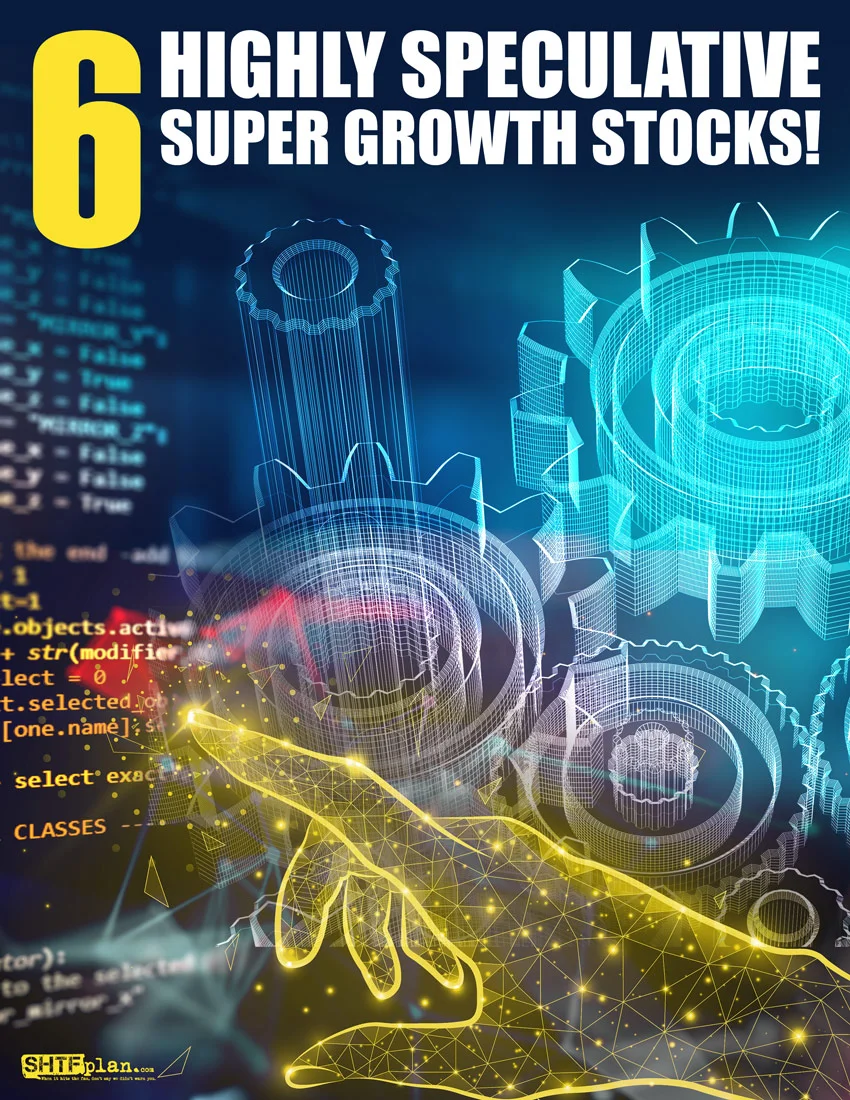This article was originally published by John W. Whitehead and Nisha Whitehead.
“The term metaverse, like the term meritocracy, was coined in a sci fi dystopia novel written as cautionary tale. Then techies took metaverse, and technocrats took meritocracy, and enthusiastically adopted what was meant to inspire horror.”—Antonio García Martínez
Welcome to the Matrix (i.e. the metaverse), where reality is virtual, freedom is only as free as one’s technological overlords allow, and artificial intelligence is slowly rendering humanity unnecessary, inferior, and obsolete.
Mark Zuckerberg, the CEO of Facebook, sees this digital universe—the metaverse—as the next step in our evolutionary transformation from a human-driven society to a technological one.
Yet while Zuckerberg’s vision for this digital frontier has been met with a certain degree of skepticism, the truth—as journalist Antonio García Martínez concludes—is that we’re already living in the metaverse.
The metaverse is, in turn, a dystopian meritocracy, where freedom is a conditional construct based on one’s worthiness and compliance.
In a meritocracy, rights are privileges, afforded to those who have earned them. There can be no tolerance for independence or individuality in a meritocracy, where political correctness is formalized, legalized, and institutionalized. Likewise, there can be no true freedom when the ability to express oneself, move about, engage in commerce, and function in society is predicated on the extent to which you’re willing to “fit in.”
We are almost at that stage now.
Consider that in our present virtue-signaling world where fascism disguises itself as tolerance, the only way to enjoy even a semblance of freedom is by opting to voluntarily censor yourself, comply, conform and march in lockstep with whatever prevailing views dominate.
Fail to do so—by daring to espouse “dangerous” ideas or support unpopular political movements—and you will find yourself shut out of commerce, employment, and society: Facebook will ban you, Twitter will shut you down, Instagram will de-platform you, and your employer will issue ultimatums that force you to choose between your so-called freedoms and economic survival.
This is exactly how Corporate America plans to groom us for a world in which “we the people” are unthinking, unresistant, slavishly obedient automatons in bondage to a Deep State policed by computer algorithms.
Science fiction has become fact.
Twenty-some years after the Wachowskis’ iconic film, The Matrix introduced us to a futuristic world in which humans exist in a computer-simulated non-reality powered by authoritarian machines—a world where the choice between existing in a denial-ridden virtual dream-state or facing up to the harsh, difficult realities of life comes down to a blue pill or a red pill—we stand at the precipice of a technologically-dominated matrix of our own making.
We are living the prequel to The Matrix with each passing day, falling further under the spell of technologically-driven virtual communities, virtual realities, and virtual conveniences managed by artificially intelligent machines that are on a fast track to replacing human beings and eventually dominating every aspect of our lives.
In The Matrix, computer programmer Thomas Anderson a.k.a. hacker Neo is wakened from a virtual slumber by Morpheus, a freedom fighter seeking to liberate humanity from a lifelong hibernation state imposed by hyper-advanced artificial intelligence machines that rely on humans as an organic power source. With their minds plugged into a perfectly crafted virtual reality, few humans ever realize they are living in an artificial dream world.
Neo is given a choice: to take the red pill, wake up and join the resistance, or take the blue pill, remain asleep and serve as fodder for the powers-that-be.
Most people opt for the blue pill.
In our case, the blue pill—a one-way ticket to a life sentence in an electronic concentration camp—has been honey-coated to hide the bitter aftertaste, sold to us in the name of expediency, and delivered by way of blazingly fast Internet, cell phone signals that never drop a call, thermostats that keep us at the perfect temperature without our having to raise a finger, and entertainment that can be simultaneously streamed to our TVs, tablets and cell phones.
Yet we are not merely in thrall with these technologies that were intended to make our lives easier. We have become enslaved by them.
Look around you. Everywhere you turn, people are so addicted to their internet-connected screen devices—smartphones, tablets, computers, televisions—that they can go for hours at a time submerged in a virtual world where human interaction is filtered through the medium of technology.
This is not freedom. This is not even progress.
This is technological tyranny and iron-fisted control delivered by way of the surveillance state, corporate giants such as Google and Facebook, and government spy agencies such as the National Security Agency.
So consumed are we with availing ourselves of all the latest technologies that we have spared barely a thought for the ramifications of our heedless, headlong stumble towards a world in which our abject reliance on internet-connected gadgets and gizmos is grooming us for a future in which freedom is an illusion.
Yet it’s not just freedom that hangs in the balance. Humanity itself is on the line.
If ever Americans find themselves in bondage to technological tyrants, we will have only ourselves to blame for having forged the chains through our own lassitude, laziness, and abject reliance on internet-connected gadgets and gizmos that render us wholly irrelevant.
Indeed, we’re fast approaching Philip K. Dick’s vision of the future as depicted in the film Minority Report. There, police agencies apprehend criminals before they can commit a crime, driverless cars populate the highways, and a person’s biometrics are constantly scanned and used to track their movements, target them for advertising, and keep them under perpetual surveillance.
Cue the dawning of the Age of the Internet of Things (IoT), in which internet-connected “things” monitor your home, your health, and your habits in order to keep your pantry stocked, your utilities regulated, and your life under control and relatively worry-free.
The keyword here, however, is control.
In the not-too-distant future, “just about every device you have—and even products like chairs, that you don’t normally expect to see technology in—will be connected and talking to each other.”
By the end of 2018, “there were an estimated 22 billion internet of things connected devices in use around the world… Forecasts suggest that by 2030 around 50 billion of these IoT devices will be in use around the world, creating a massive web of interconnected devices spanning everything from smartphones to kitchen appliances.”
As the technologies powering these devices have become increasingly sophisticated, they have also become increasingly widespread, encompassing everything from toothbrushes and lightbulbs to cars, smart meters, and medical equipment.
It is estimated that 127 new IoT devices are connected to the web every second.
This “connected” industry has become the next big societal transformation, right up there with the Industrial Revolution, a watershed moment in technology and culture.
Between driverless cars that completely lacking a steering wheel, accelerator, or brake pedal and smart pills embedded with computer chips, sensors, cameras, and robots, we are poised to outpace the imaginations of science fiction writers such as Philip K. Dick and Isaac Asimov. (By the way, there is no such thing as a driverless car. Someone or something will be driving, but it won’t be you.)
These Internet-connected techno-gadgets include smart light bulbs that discourage burglars by making your house look occupied, smart thermostats that regulate the temperature of your home based on your activities, and smart doorbells that let you see who is at your front door without leaving the comfort of your couch.
Nest, Google’s suite of smart home products, has been at the forefront of the “connected” industry, with such technologically savvy conveniences as a smart lock that tells your thermostat who is home, what temperatures they like, and when your home is unoccupied; a home phone service system that interacts with your connected devices to “learn when you come and go” and alert you if your kids don’t come home; and a sleep system that will monitor when you fall asleep when you wake up, and keep the house noises and temperature in a sleep-conducive state.
The aim of these internet-connected devices, as Nest proclaims, is to make “your house a more thoughtful and conscious home.” For example, your car can signal ahead that you’re on your way home, while Hue lights can flash on and off to get your attention if Nest Protect senses something’s wrong. Your coffeemaker, relying on data from fitness and sleep sensors, will brew a stronger pot of coffee for you if you’ve had a restless night.
Yet given the speed and trajectory at which these technologies are developing, it won’t be long before these devices are operating entirely independent of their human creators, which poses a whole new set of worries. As technology expert Nicholas Carr notes, “As soon as you allow robots, or software programs, to act freely in the world, they’re going to run up against ethically fraught situations and face hard choices that can’t be resolved through statistical models. That will be true of self-driving cars, self-flying drones, and battlefield robots, just as it’s already true, on a lesser scale, with automated vacuum cleaners and lawnmowers.”
For instance, just as the robotic vacuum, Roomba, “makes no distinction between a dust bunny and an insect,” weaponized drones will be incapable of distinguishing between a fleeing criminal and someone merely jogging down a street. For that matter, how do you defend yourself against a robotic cop—such as the Atlas android being developed by the Pentagon—that has been programmed to respond to any perceived threat with violence?
Moreover, it’s not just our homes and personal devices that are being reordered and reimagined in this connected age: it’s our workplaces, our health systems, our government, our bodies, and our innermost thoughts that are being plugged into a matrix over which we have no real control.
It is expected that by 2030, we will all experience The Internet of Senses (IoS), enabled by Artificial Intelligence (AI), Virtual Reality (VR), Augmented Reality (AR), 5G, and automation. The Internet of Senses relies on connected technology interacting with our senses of sight, sound, taste, smell, and touch by way of the brain as the user interface. As journalist Susan Fourtane explains:
Many predict that by 2030, the lines between thinking and doing will blur. Fifty-nine percent of consumers believe that we will be able to see map routes on VR glasses by simply thinking of a destination… By 2030, technology is set to respond to our thoughts, and even share them with others… Using the brain as an interface could mean the end of keyboards, mice, game controllers, and ultimately user interfaces for any digital device. The user needs to only think about the commands, and they will just happen. Smartphones could even function without touch screens.
In other words, the IoS will rely on technology being able to access and act on your thoughts.
Fourtane outlines several trends related to the IoS that are expected to become a reality by 2030:
1: Thoughts become action: using the brain as the interface, for example, users will be able to see map routes on VR glasses by simply thinking of a destination.
2: Sounds will become an extension of the devised virtual reality: users could mimic anyone’s voice realistically enough to fool even family members.
3: Real food will become secondary to imagined tastes. A sensory device for your mouth could digitally enhance anything you eat, so that any food can taste like your favorite treat.
4: Smells will become a projection of this virtual reality so that virtual visits, to forests or the countryside for instance, would include experiencing all the natural smells of those places.
5: Total touch: Smartphones with screens will convey the shape and texture of the digital icons and buttons they are pressing.
6: Merged reality: VR game worlds will become indistinguishable from physical reality by 2030.
This is the metaverse, wrapped up in the siren-song of convenience and sold to us as the secret to success, entertainment, and happiness.
It’s a false promise, a wicked trap to snare us, with a single objective: total control.
George Orwell understood this.
Orwell’s masterpiece, 1984, portrays a global society of total control in which people are not allowed to have thoughts that in any way disagree with the corporate state. There is no personal freedom, and advanced technology has become the driving force behind a surveillance-driven society. Snitches and cameras are everywhere. And people are subject to the Thought Police, who deal with anyone guilty of thought crimes. The government, or “Party,” is headed by Big Brother, who appears on posters everywhere with the words: “Big Brother is watching you.”
As I make clear in my book Battlefield America: The War on the American People and in its fictional counterpart The Erik Blair Diaries, total control over every aspect of our lives, right down to our inner thoughts, is the objective of any totalitarian regime.
The Metaverse is just Big Brother in disguise.











This seems to be a misunderstanding of the term meritocracy. Not sure where they get their twisted definition from, but meritocracy is all about individuality and success based on individual merit. Hmmmmmm.
In other words, those who kiss up to the leaders and obey them have great merit and those who do not have none.
This is as it should be in a meritocracy.
“And I heard another voice from heaven, saying, Come forth, my people, out of her, that ye have no fellowship with her sins, and that ye receive not of her plagues:”
Revelation 18:4, American Standard Version
The work of the hands and natural fare are costly luxuries, though, at present, the soil, seasonal rains, and sunlight still support the expected plant growth, now under the threat of artificial scarcity. From what do we escape, if not regulatory capture?
Considering the majority of these products will have their code written by Asians, I am looking forward to how smart tech reacts to violent blacks.
Asians value security and good behaviour. And it is a simple fact of life that products and inventions reflect the people who built them and the people who service them. Who hasn’t seen those once-wonderful LA homes on palm treed streets now occupied by poor blacks. Where the residents were once elegant and suave, today’s occupiers live in chaos and disorder.
Do you think smart tech will have tolerance for drug dealers, gang bangers, street muggers? I don’t think so.
It will be an intellectual arms race and one where the dumb and lazy are going to get fried. Biohackers will engineer out the obese, the ugly.
1984 – The Palimpsest. aka; ‘Orwells Revenge’
Oh yes, an article staged around the projection theory of Hollywood, always fascinating with easy to reach for topical reference.
Some of us never participated in the first place and have no such struggles overcoming an artificially imposed sense of morality.
“If you need a login to have free speech, you have already relinquished free speech.” Called it 20 years ago, social media systems would not end well.
“My free speech does not end when you are offended.” Inalienable rights, granted by God not government.
“The medium is the message.” Search out that wiki page. It is a narrative and theory revolving around how the form of communication dictates the type of communication which will be present in any given communicable media. Do not be so naive as to confuse the spoken word with a digital voice.
“All dictatorships rule by fraud and force. But once the fraud is discovered they must operate exclusively with force.” Orwell.
You know that IOT thing, interconnected internet of things theory? How society was solicited to cut the cord and adopt new technologies? That’s blueray and wifi, the aforementioned mechanisms of control. David Knight called it, they’ve been staging this roll out for decades. Old tech is good tech. Go to device manager and services, turn off these components if you have them. Buy old tech on ebay, never purchase ‘smart’ anything on purpose. The proximity sensors on blueray only indicate local proximity for users, yet the beam iteslf is capable of complex data relay hundreds of yards if not more. In the experience of enjoying advanced technology, many have unwittingly signed away their own sovereignty and dignity in the process. Read a book. Turn off the television. Plant a garden. This is in other words what the good Darth Skippy above expresses. I would compliment the notion with the additional inclusion of societal structure capture as an inexorably intertwined consequence of regulatory capture.
“The man whom reads nothing at all is more educated than the man whom reads nothing but newspapers.” (updated for 2021): The man whom reads nothing at all and has no actual social media accounts is more educated and aware than the man whom reads all communications from every possible social media site. Or something like that.
I rarely learn about new concepts and new information on social media, although it is helpful for forming specific arguments to counter the propaganda of the day. It’s important for perspective to read both sides of the issue in order to understand the constant pervasive nature of propaganda. This extends to all forms of media, including the art of visual storytelling in digital form. If you did not see it coming a mile down the tracks you were blind.
Ethics. Virtue. Morals. Inalienable rights. These are the filters one must learn to pass all information through for better discernment. Learn to see with love in your heart rather than fear in your eyes. The world may yet once more allow you to observe the glory of creation, the power of your own voice. Thankfully nobody on the internet is in charge of voices in the real world. The pen will always be mightier than the sword, physical, digital, or otherwise. Take heart, the world is what we make of it. Plant the seeds of Liberty everywhere you go.
Sincerely, thank you for reading. Timothy Turnstone.
“Look around you.Everywhere you turn people are addicted to their Internet connected screen devices”
Some of us have been saying this for over a decade but we were totally ignored.
A PHONE is controlling the majority of people in America.
We’ve all seen this in person because it’s unavoidable in public.
People clutching their phone as if their life depends on it.
People refusing to be separated from their phone for more than 10 minutes.
How many parents over the past 25 years handed the role of parenting over to Hollywood, phones, tablets, Internet, video games, etc;?
How many parents neglected to teach their kids basic life skills, discipline, respect, appreciation, patience and accountability?
If you want to point fingers you need to start with the PARENTS that were/are enablers.